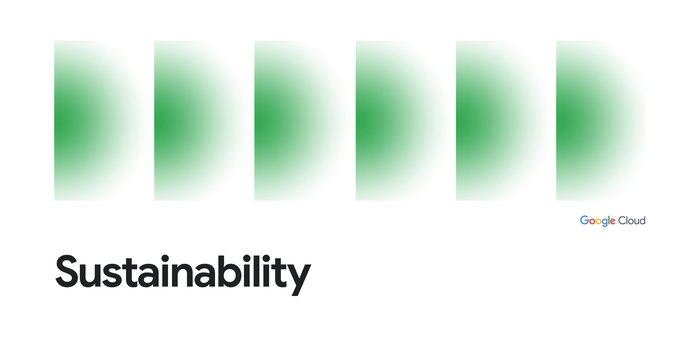On Decarbonization Day new research shows the potential impact of digital technologies
Justin Keeble
Managing Director for Global Sustainability
Try Google Cloud
Start building on Google Cloud with $300 in free credits and 20+ always free products.
Free trialEditor's note: At Google Cloud we’re working with global organizations to help them use technology to build a more sustainable future. During the 2022 United Nations Climate Change Conference, or COP27, representatives from countries and organizations around the world — including Google Cloud — gathered in Sharm El-Sheikh, Egypt from November 7 - 18, 2022 for the latest round of climate talks. Check here for perspectives from onsite, thoughts from Google experts and customers, curated content and announcements. Or catch the event for yourself on Youtube.
In many ways, Europe is at the forefront of addressing the climate crisis. Not only have European leaders been central to the ongoing discussions at COP27, Europe has already committed to achieving a net-zero carbon economy by 2050. This goal calls for investments in electricity infrastructure alone in excess of EUR 560 billion, with funds for millions of solar panels, 10 million heat pumps in homes, buildings and factories, and putting 30 million zero-emission vehicles on the road by 2030.
This poses an opportunity, as effective action now can create a leadership model for other countries and begin a virtuous cycle of innovation and lower costs for lower carbon models.
Sustainability-oriented digital companies should partner with European companies and governments to put in place digital technologies and solutions that offer speedy, affordable climate mitigation. A recent study from Implement Consulting Group (ICG), commissioned by Google, provides some ways to make this work.
Take the largest carbon-emitting sectors of the EU economy, like transportation, construction and building operations, manufacturing, and agriculture. Collectively they produce two-thirds of EU emissions, yet there are many opportunities to quickly monitor and lower the amount of carbon they emit. Achieving a net-zero economy across the EU will require perhaps a 25% reduction in greenhouse gasses. Focusing on applying digital efficiencies to the following sectors' existing systems can reduce emissions in ways that can scale up, while having an acceptable social cost.


The good news is that, in each of these sectors, there are already promising examples of digital technologies that are reducing emissions. For example, the transport sector has effective technologies for charging, energy management, ride sharing, mobility services, among other areas. Google Cloud has also worked on logistics optimization, fleet routing, and EV optimization, which have a proven record of saving energy and cutting carbon use.
In building management, we can apply better energy controls, thermostats, air quality monitoring and smart parking. To that end, Google’s Mesa product helps commercial buildings reduce carbon emissions, and recently added leak detection and air quality monitoring to its capabilities.
In energy, cloud technology can help with grid management, smart meters, asset planning tools, solar propensity modeling, and methane tracking. There’s also wind farm productivity optimization, for which Google Cloud recently teamed up with European utility ENGIE, using AI to optimize the value of ENGIE’s wind portfolio.
Finally, manufacturers can employ AI in process optimization, model production lines for greater efficiency, and use machine learning for demand forecasting. Ford Motor Company worked with Google Cloud to implement a data platform operating on more than 100 key machines connected across two plants, streaming and storing over 25 million records per week. This gives Ford actionable data-driven insights to help its manufacturing plants become even more efficient.
These technologies alone will not solve the EU's carbon problem, of course, but they can go a long way towards working through the problem, enabling progress at a difficult moment and inspiring companies in the EU and elsewhere to take further steps. According to ICG's study, decarbonization happens faster in heavily digital economies, with no sacrifice of economic growth. Between 2003 and 2019 the most digital economies in the EU reduced their greenhouse gas (GHG) by 25% between 2003 and 2019 and grew their economies by 30%. Meanwhile, the least digital economies reduced their GHG emissions by just 18%, and grew their economies by 18%.
Ultimately, industries across Europe and the world are being presented with a mandate and an opportunity to step up and lead the charge in achieving society’s climate objectives. Digital technologies can help enterprises reduce emissions and stave off the worst effects of climate change and create a more secure energy future for all. Fortunately, businesses don’t have to go it alone. Across industries, they can turn to technology partners like Google Cloud to work with them not just to decarbonize their own IT footprints, but to help pinpoint the unique opportunities for rewiring their businesses to accelerate their decarbonization goals.



